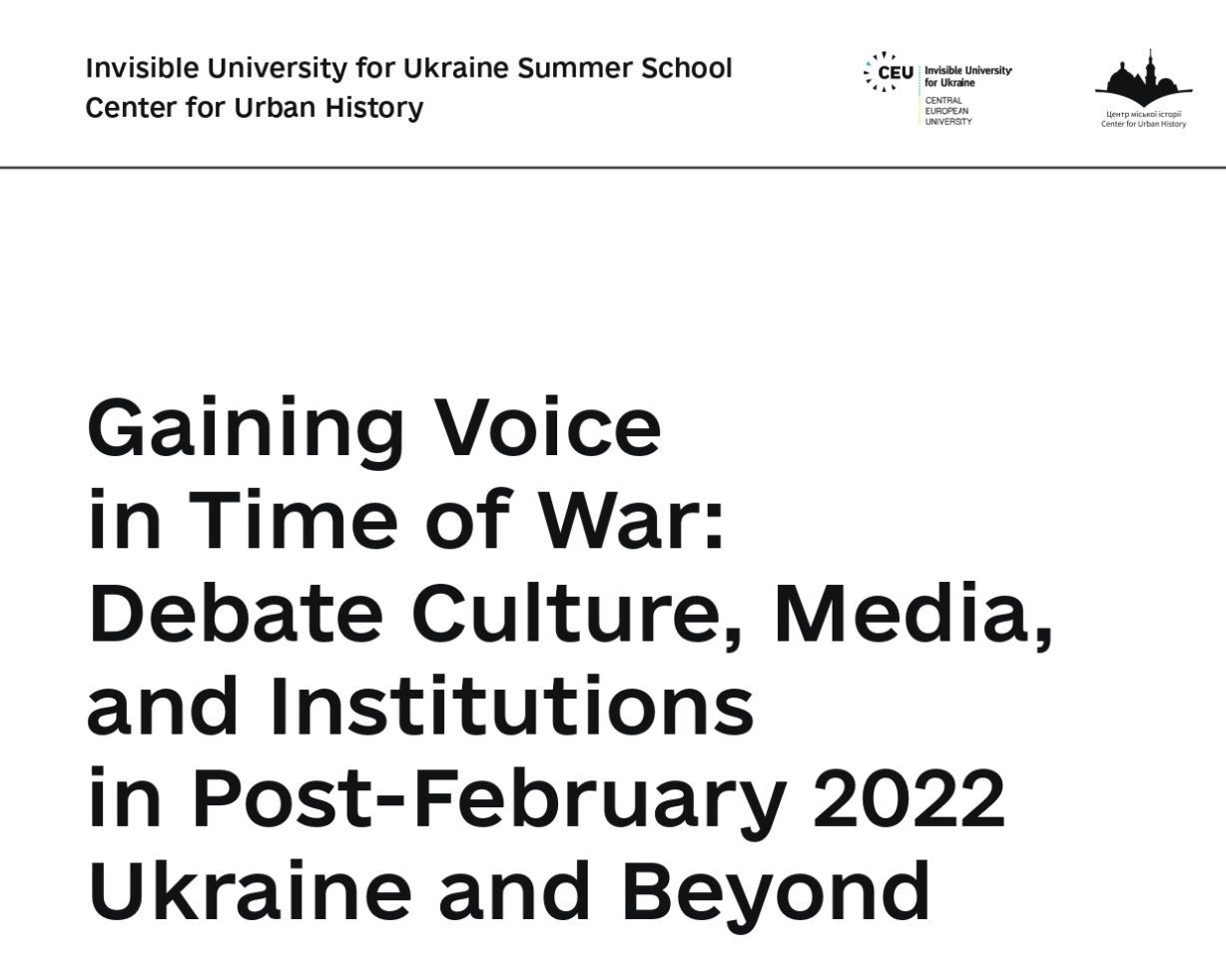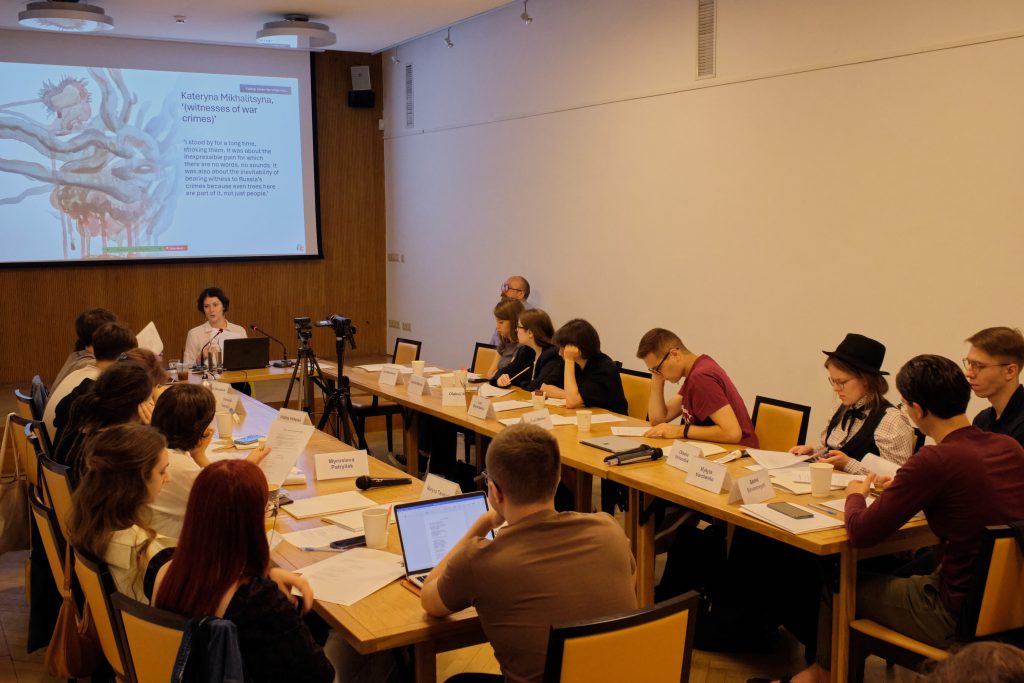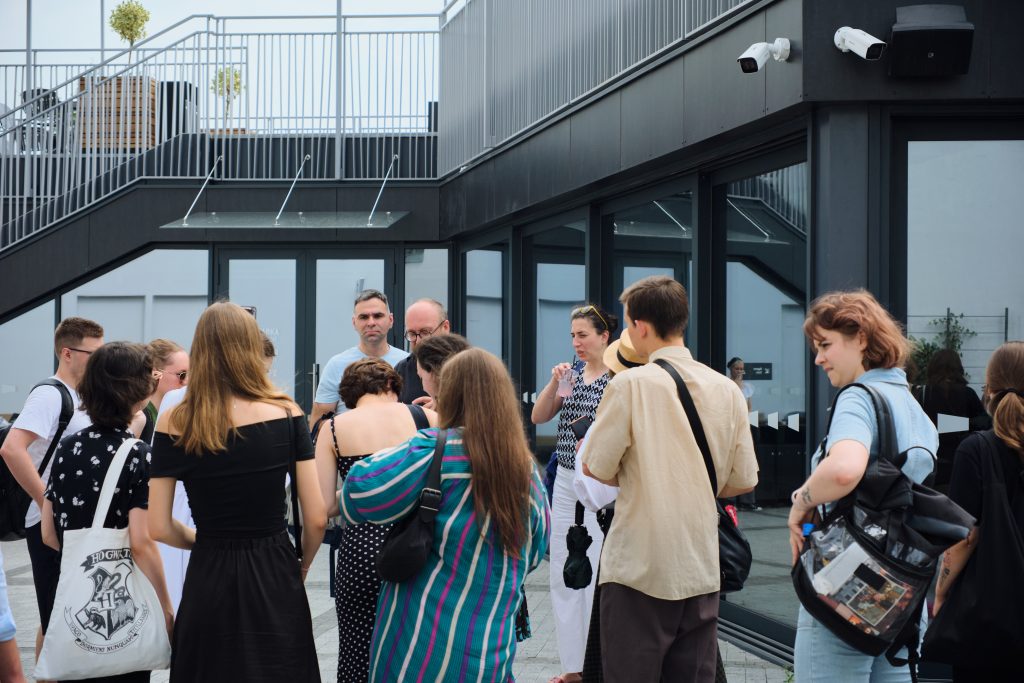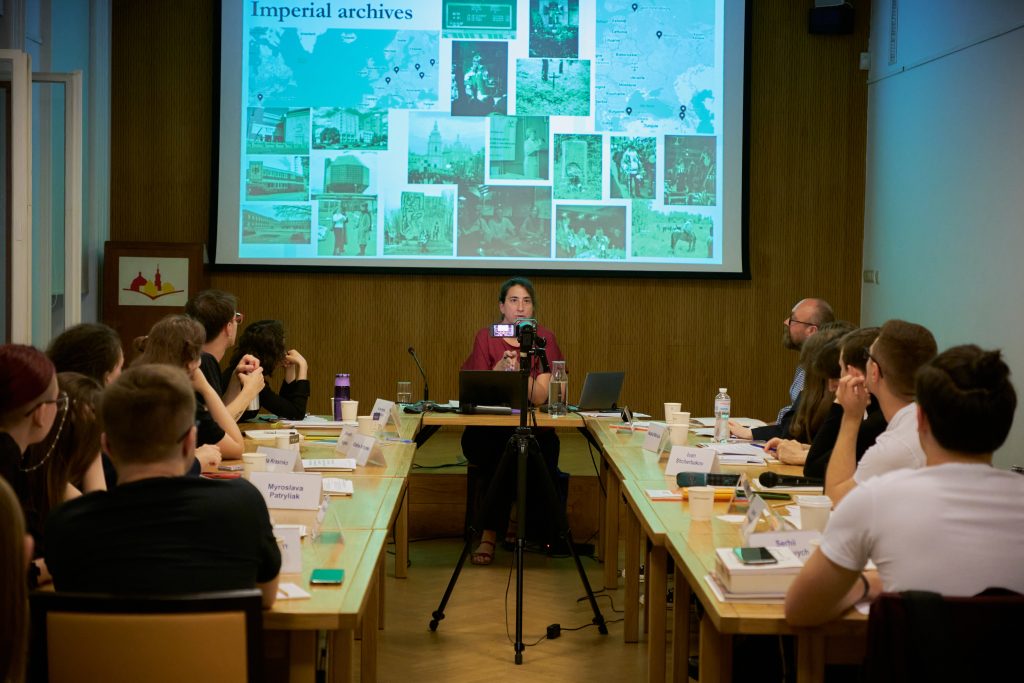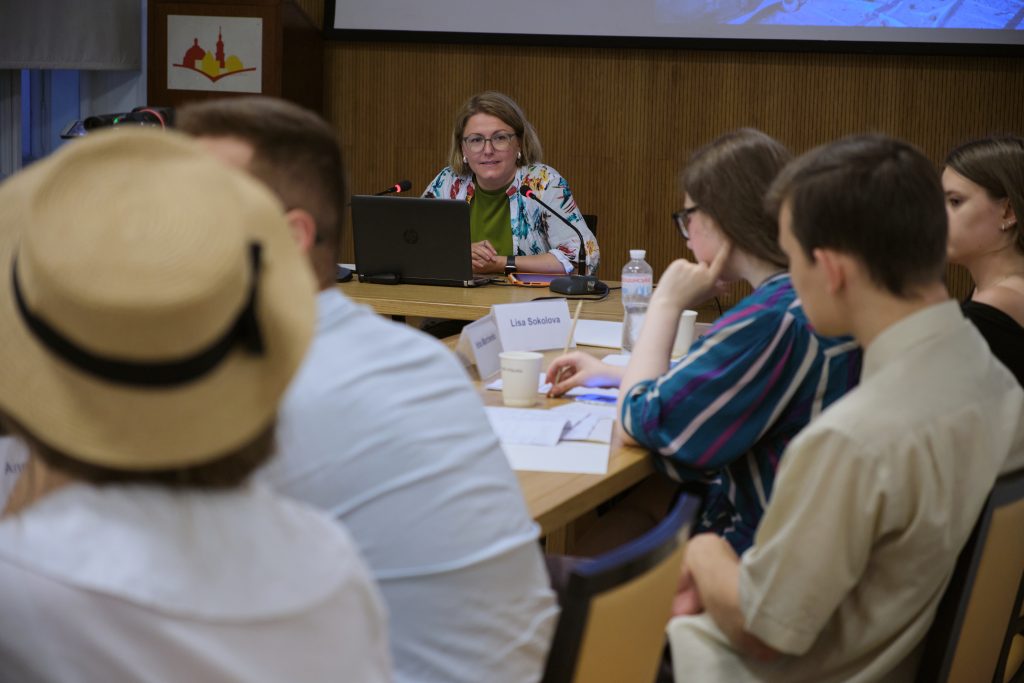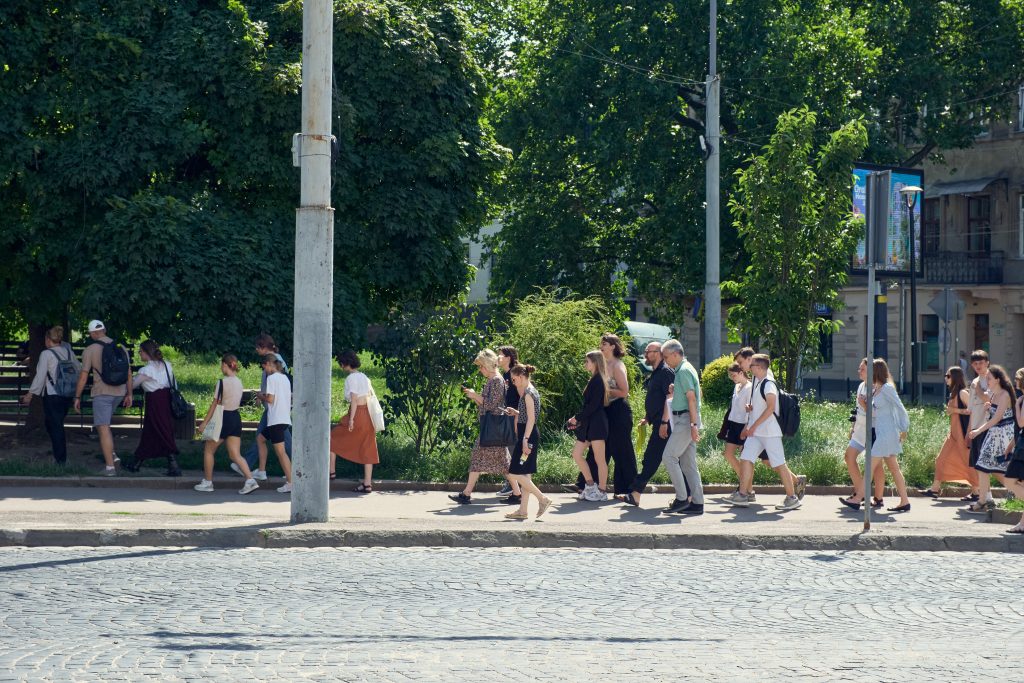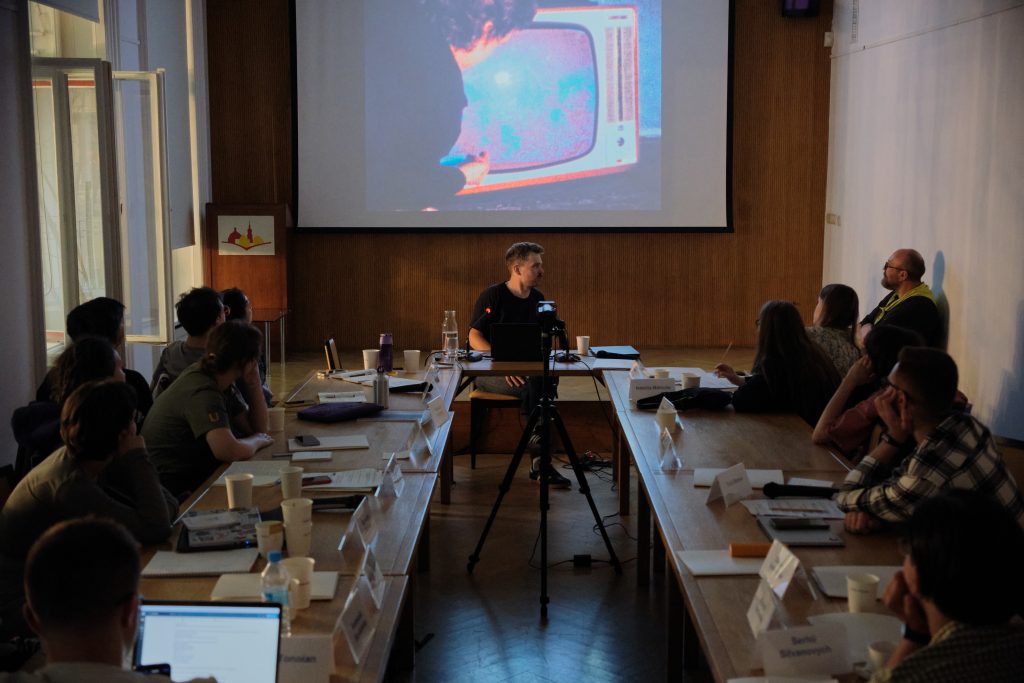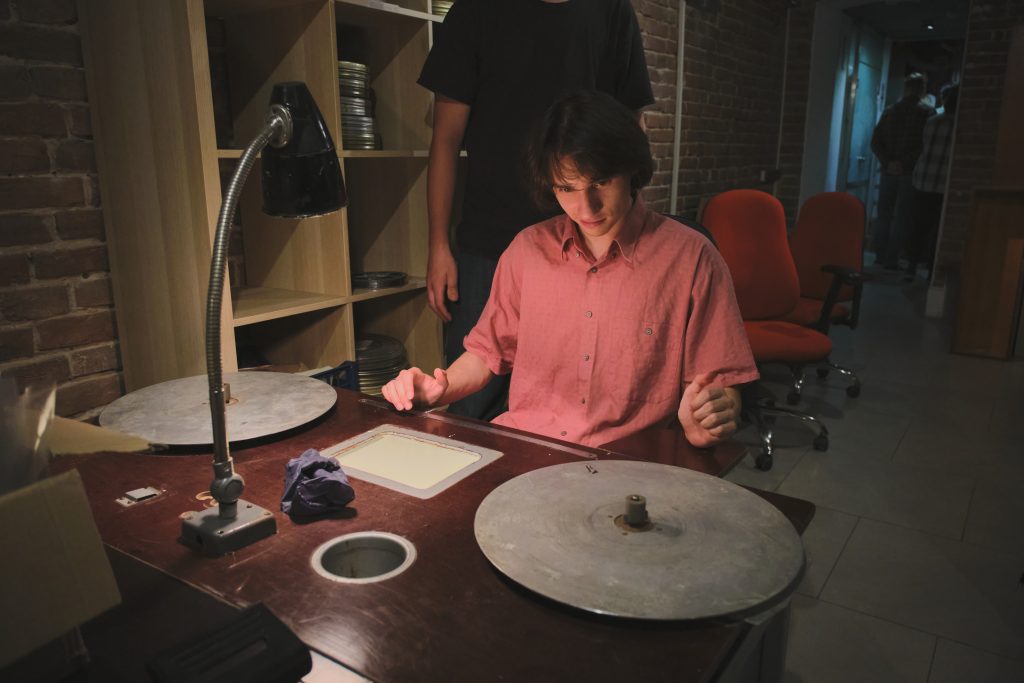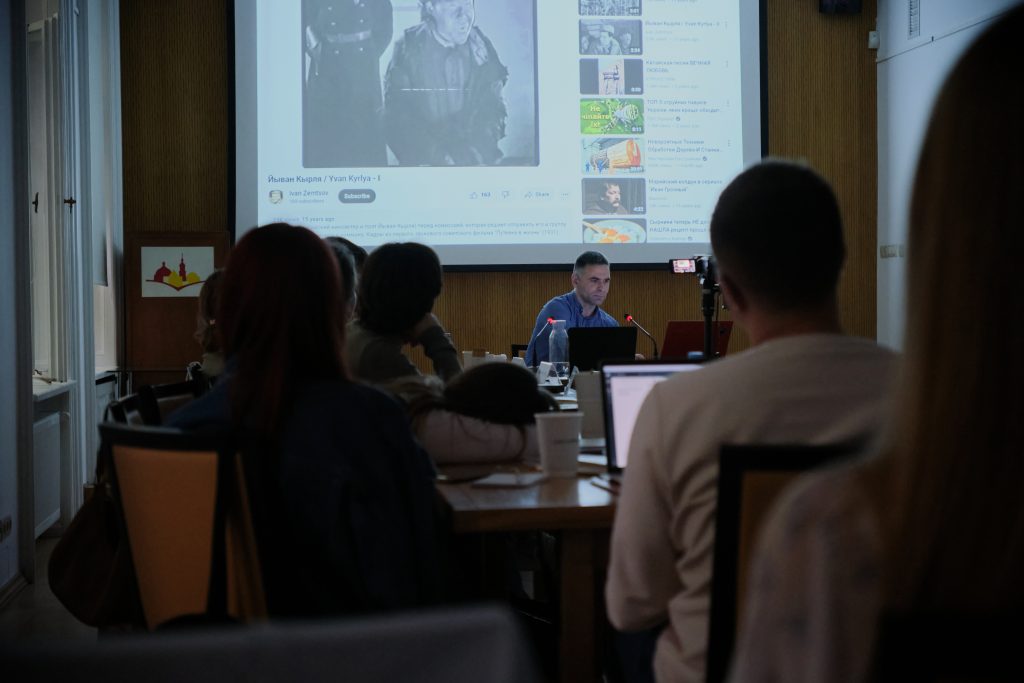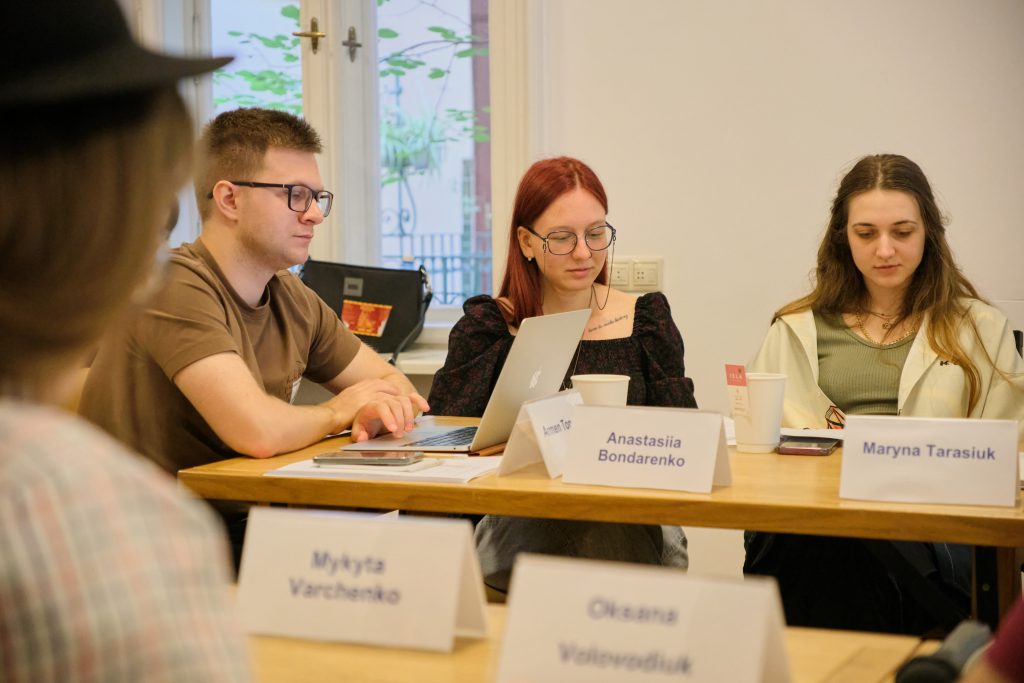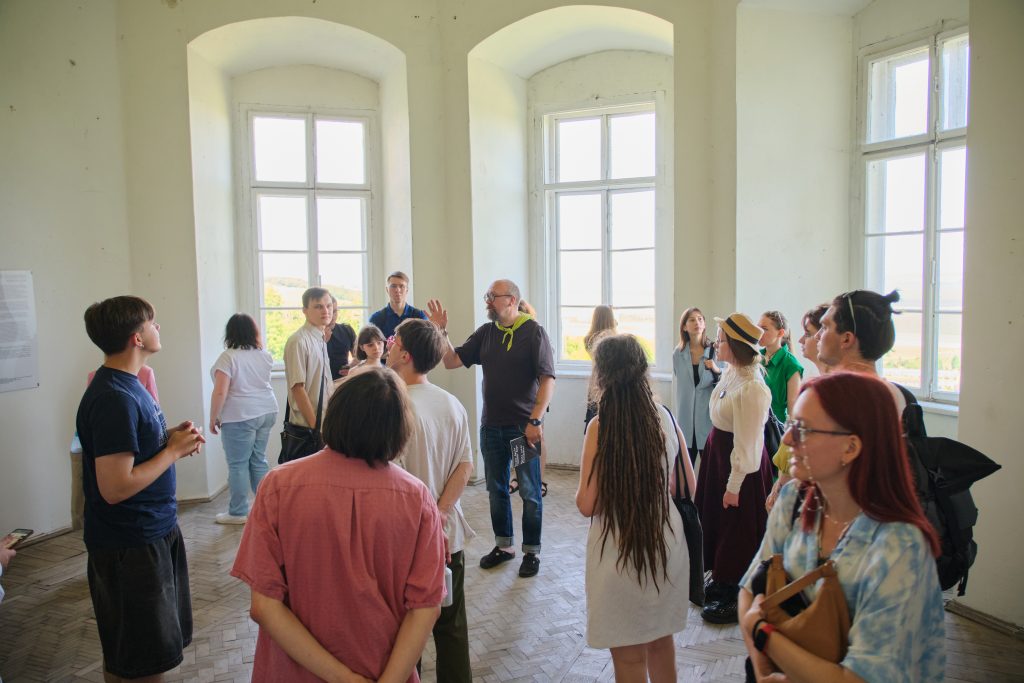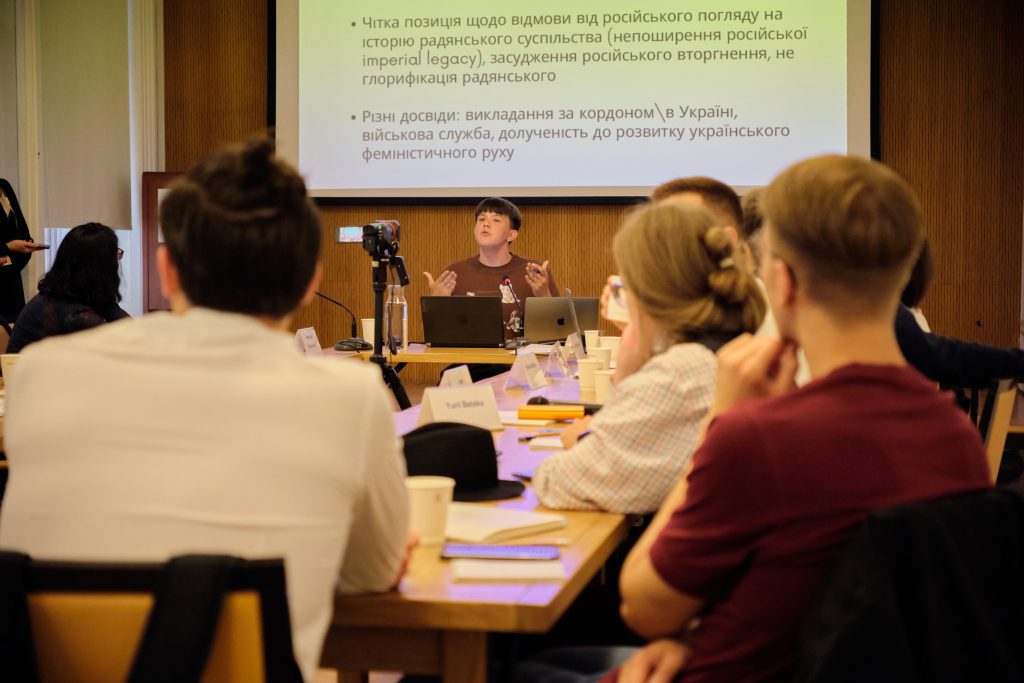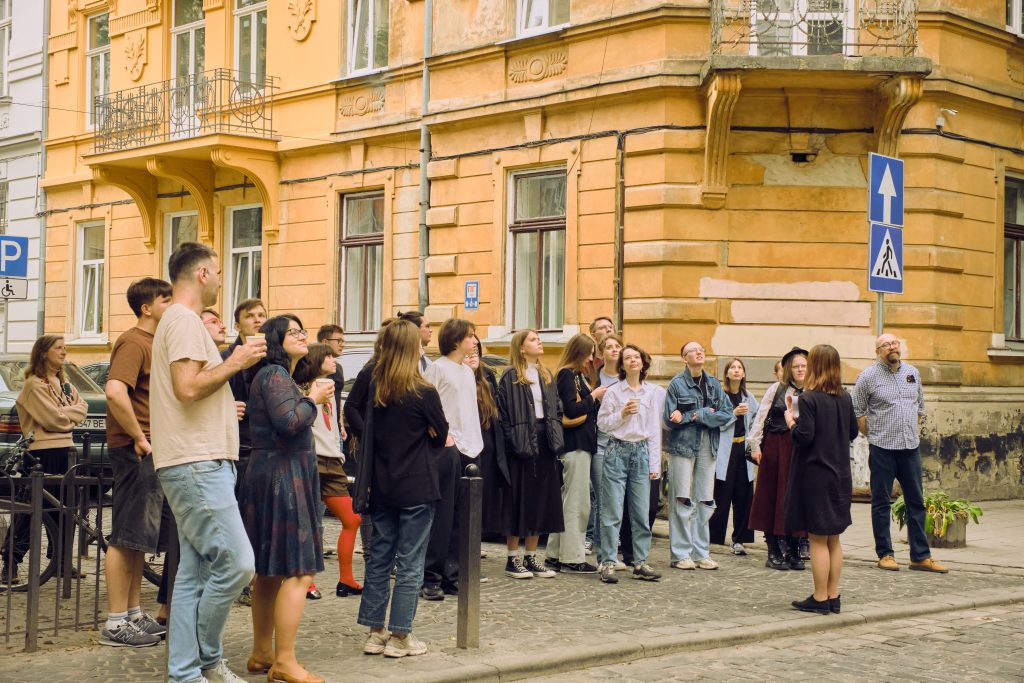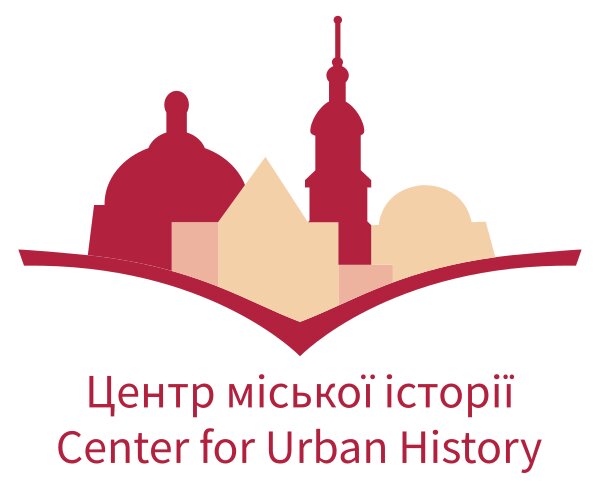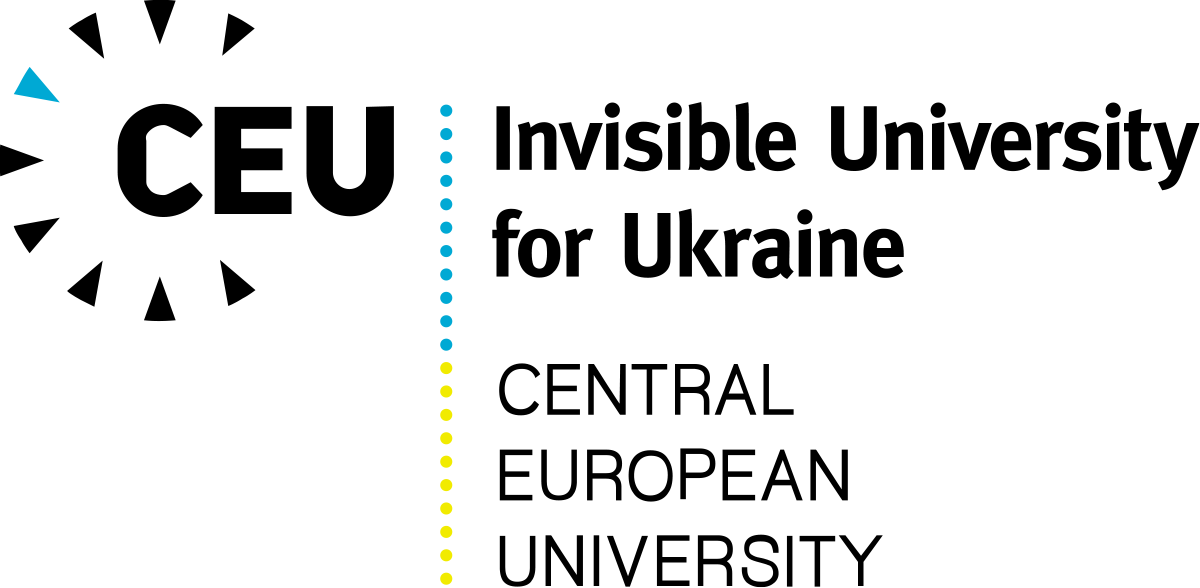Gaining Voice in Time of War: Debate Culture, Media, and Institutions in Post-February 2022 Ukraine and Beyond
29.6.2024 – 07.7.2024
Center for Urban History, Invisible University for Ukraine
The Invisible University for Ukraine Summer School will bring together IUFU students and faculty members, scholars, and artists from Ukraine and beyond to discuss the challenges posed upon the political articulation and debate culture by Russia’s ongoing war against Ukraine.
To grant equal access to every student, the Summer School will be held on two campuses, Lviv (Center for Urban History and Budapest (CEU Campus), from 29 June to 9 July 2024. Students traveling from Ukraine will meet in Lviv on the 29th of June and spend a day together, after which those who can cross the border will travel on to Budapest, while those who cannot continue the program in Lviv till the 7th of July.
The Summer School complements the IUFU courses on intellectual history, cultural diplomacy, society, law, and politics. It addresses topics beyond the content of particular courses, deepening and expanding students' educational attainments. It also explores the possibilities of post-war maintenance of democratic institutions. The Summer School reflects on the vital intellectual problems raised by the ongoing war and the specific challenges students and scholars face. It seeks to articulate the Ukrainian cause internationally in the context of overlapping conflicts and crises by giving voice to the young generation of Ukrainian intellectuals and professionals. The voice here implies both the singular opinion and its articulation in public. At the same time, by addressing the ‘gaining,’ we aim to critically assess the possibilities of debate in times of war on individual and collective levels, given complex frameworks of wartime relationships inside and outside particular communities. In the educational experience of the IUFU, the problematic nature of wartime expression and articulation is particularly acute: what is worth teaching if pre-war knowledge could not prevent war, what is suitable for discussion in a situation where every word can wound, and how can individual voices be rendered distinct in a situation where private judgment is buried beneath the prevailing demand for unity? The Summer School problematizes the modalities of articulation and brings them into the debate that persists through wartime.
The Lviv campus of the IUFU Summer School offers many practical sessions and proposes strategies for thinking about how Ukrainian culture, identity, and institutional practices can be studied and valorized and how resilient civic and academic organizations can be created and maintained in the context of the war and postwar reconstruction. The session in Lviv will offer the possibility to explore various NGO experiences and their interaction with state structures and local government (session on July 2). By analyzing wartime artworks and literature, we will question the relation between the lived experience — such as exposure to immediate danger, physical presence, or communal belonging — and the content of one’s utterance. What is the changing nature of the debate? (sessions on July 2 and July 5). We will explore the tension between the requirement of emotional neutrality as a precondition for discussion and the necessity of establishing sensual affinity (vulnerability) to achieve understanding.
We want to debate the intellectual and cultural genealogy of critical thinking and questions about owning a voice (exhibition visits, sessions on July 1 and 2) in historical prospective. The school will employ decolonial and critical theory tools and reflect upon the matter on two levels: how does a particular community (social, age, gender, ethnic, etc.) gain the voice, and how does it verify the authenticity of the statement voiced in public? (sessions on July 1, 2 and 3rd). Sessions will discuss historical and contemporary media by which the statements are conveyed and examine how media facilitate, limit, and filter the actual debate, thus determining its modalities. We will engage in close reading of texts and discuss with authors aesthetics and political matters of their writing (sessions on July 5). The Lviv campus offers personal mentoring sessions and practical workshops on visual analysis, digital history, media archeology, and microhistory. On July 1 and July 6, we will visit exhibitions and engage with authors, artists, and those whose work deals with recent artistic production in Ukraine. Many of the most basic and urgent questions can be and have been posed more sensitively in the aesthetic sphere.
Components of the school:
- Thematic lectures, discussions, and roundtables with prominent intellectuals from
Ukraine and beyond; - Mentoring sessions with the guest professors and specialists of the Center for Urban
History; - Workshops on visual data and digital tools usage; analysis of architecture and texts
- Visiting institutions and meeting civil activists; visiting exhibitions and talks with
writers
ORGANIZERS
Ostap Sereda (Associate Professor in History at the Ukrainian Catholic University and CEU recurrent guest professor; IUFU Director); Sofia Dyak (Center for Urban History); Bohdan Shumylovych (Center for Urban History); Balázs Trencsényi (CEU Professor, History Department, and Director of CEU IAS); Tetiana Zemliakova (EUI Max Weber Postdoctoral Fellow; CEU Democracy Institute; IUFU Summer School Program Director); and members of the Visible Ukraine team.
The Invisible University for Ukraine
The Invisible University for Ukraine is initiated and implemented by CEU in cooperation with Imre Kertész Kolleg, University of Jena, as well as other Ukrainian (Ivan Franko National University of Lviv and Ukrainian Catholic University) and global university partners. IUFU has been supported by the Open Society University Network, with co-funding from the Deutscher Akademischer Austauschdienst. The Summer School also benefits from the financial support from the Mott Foundation.
The Summer School is co-organized by the Central European University and the Center for Urban History of East Central Europe in Lviv.
Credits
Gallery: Oleksandr Korman
